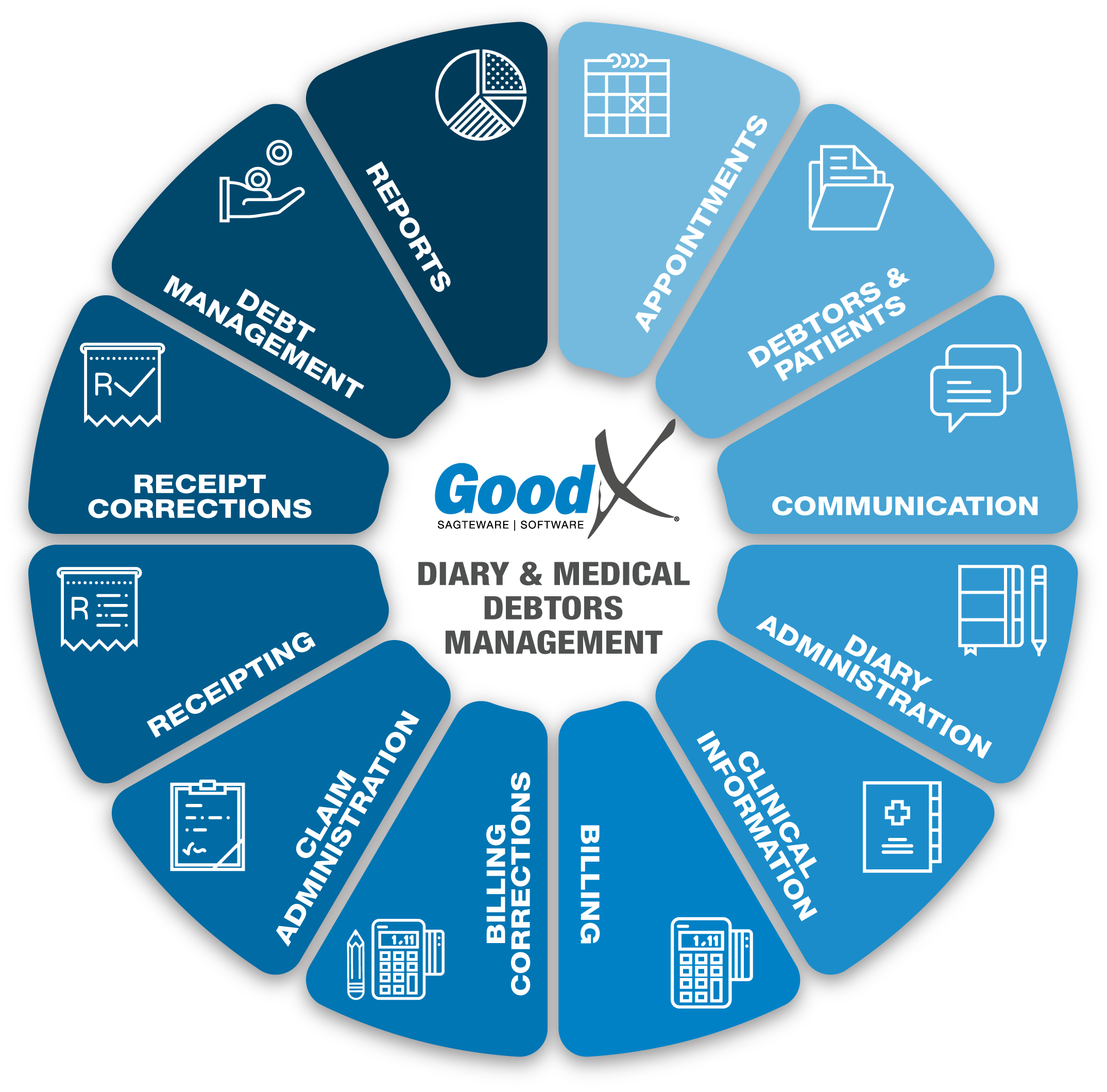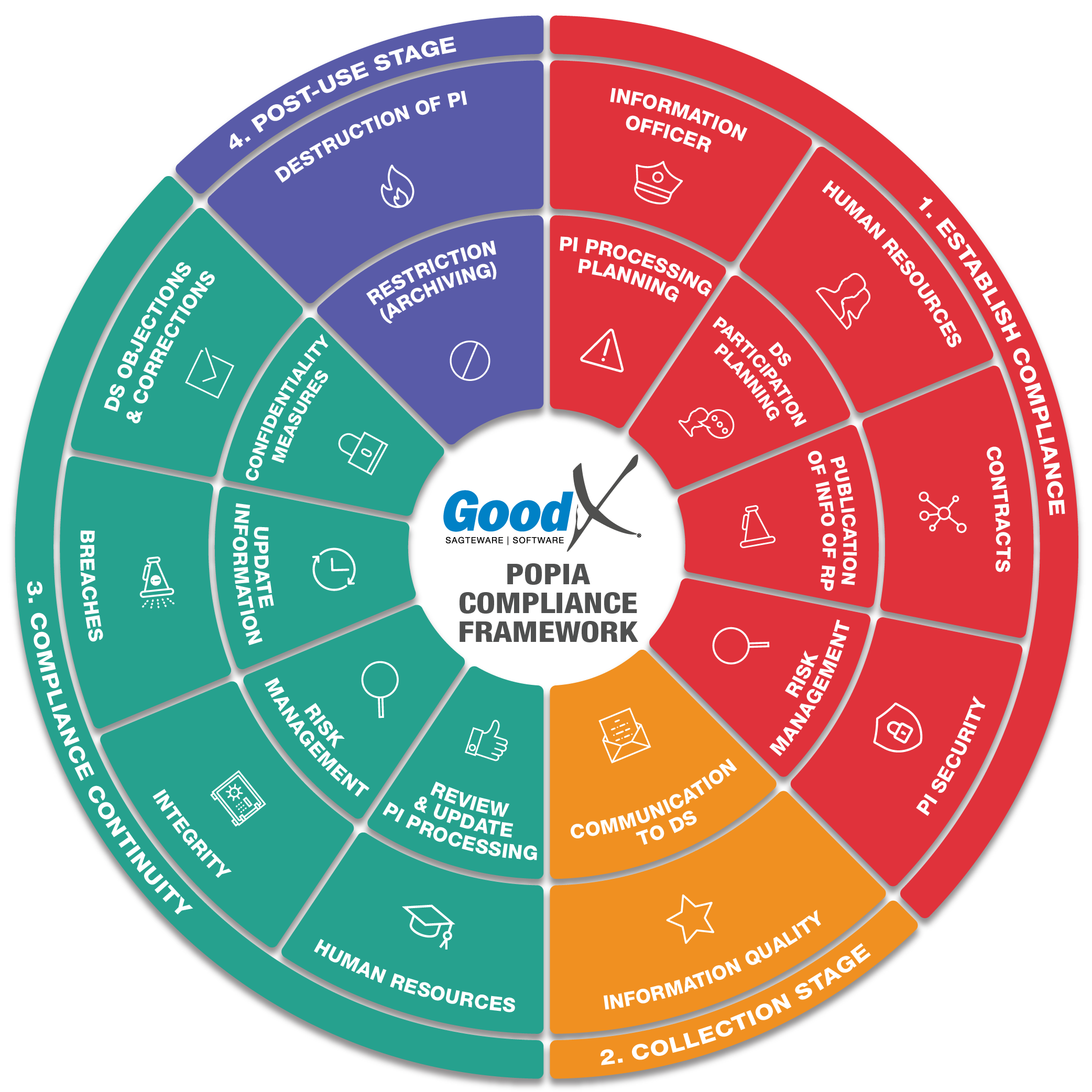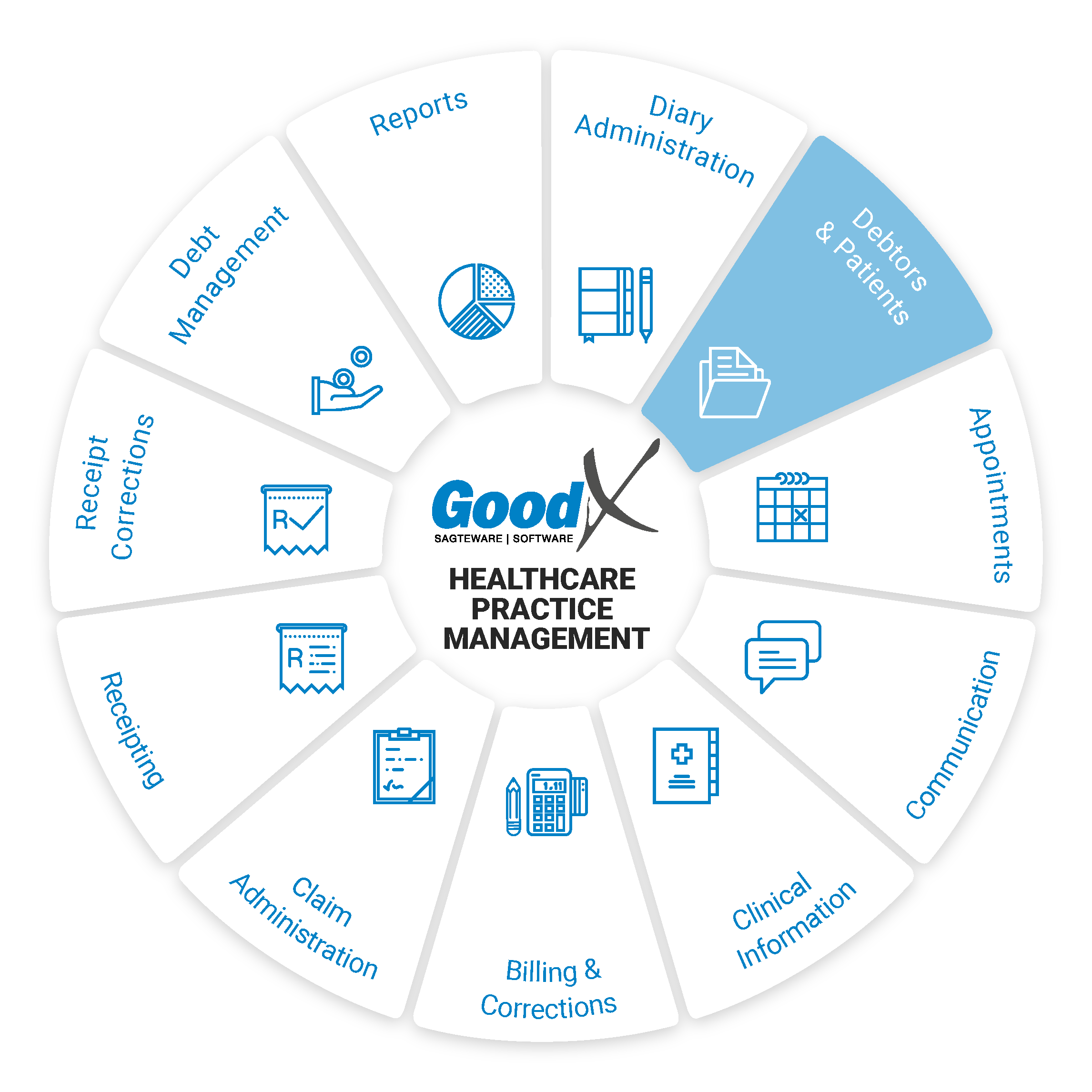Best Practice Guidelines: Healthcare Practice Management & POPIA Compliance Framework
Best Practice Guidelines: Healthcare Practice Management
&
POPIA Compliance Framework


Copyright © 2021 GoodX Software. All rights reserved.
GoodX online Learning Centre
learning.goodx.co.za
5. Debtors & Patients: Roles & Purpose
Responsible Roles
|
|
Management Role:
|
|
|
Operational Role:
|
 |
Patients are connected to the Medical Practice via the patient portal app. Patients should complete and upload all the necessary information and documents to activate their patient portal profiles. Patients should update their information in case changes occur and sync to the practice every time the practice is visited. |
Stage 2: Collection stage
Stage 4: Post-use stage
|
 Purpose of Debtors
& Patients
Purpose of Debtors
& Patients
It is essential that the correct information for medical debtors (the persons taking responsibility for the medical accounts, e.g. main members of medical aids or guardians of minors) and their dependents are captured so that claim processing and follow-ups will be successful.
The correct information on patients is also important for clinical purposes. Clinical information is linked to the patient's electronic file. If the patient's information is incorrect, the patient can be treated incorrectly and can result in a law suite against the practice or practitioner.
Important and updated information can save a life or reduce problems in the practice, for example:
- Next of kin can assist in emergencies;
- Communication from the practice to the patient or debtor;
- Follow-up and reminder appointments can be scheduled;
- Optimised debt collection;
- Necessary for POPIA compliance.
Information needs to be reviewed at least every 6 months. This can be done with the patient portal and electronic record update requests (SyncVites). Debtors/Patients information should always be handled with the utmost confidentiality and ensure the information stays confidential at all reasonable costs.

